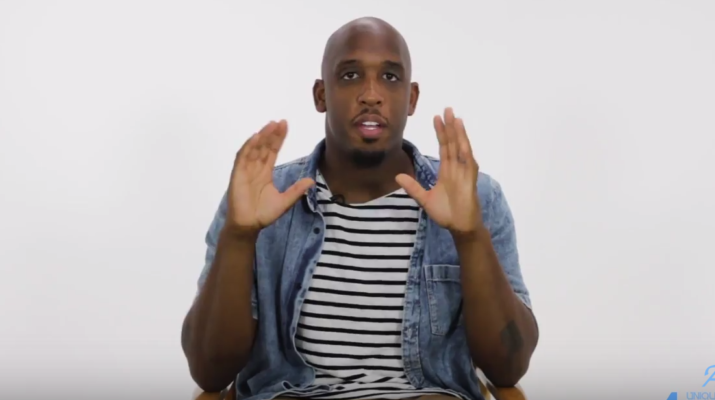Rap music is constantly changing directions and evolving, and it is no secret that the South has a firm grip on the steering wheel. Since the immersion of Southern rap into pop culture circa the mid- ’90s, groups like OutKast gave us more than just trunk-thumping gold. They introduced us to the “trap” and various Southern slang. Painting a vivid picture of an often misrepresented lifestyle.
Since the emergence of Southern rap, many critics believe the South killed the rap game. It brought forth lazy lyrics, which often sound remedial, synonymous beat cadences, and the infamous melodic mumble. However, the South did a lot to change the culture of rap and Derek Minor, a Christian rapper and entrepreneur from Tennessee, tells us why.
In a recent episode of Myths Exposed, Derek explains why Southern rappers are not one dimensional.
“When you think about the 808, and you think about the way it’s developed you think about OutKast, you listen to their music, you listen to UGK, 8 Ball & MJG, when you see the transformation of what we’ve done with these drum machines, or Mannie Fresh. You think about all of the Southern music that we have, the Florida Miami bass movement, all of that is such a diverse sound in itsself. Now, when you think about today, you think about how it has evolved, you can’t find music without a Southern influence today.”
Because the airwaves were so heavily populated with the stylings and sounds of the East and West coast, the South met some reluctance with radio play, as a lot of DJs were reluctant to break in the new wave.
“The radio didn’t play Southern music,” Derek Minor says. “We always were overlooked. They were either playing music from LA or New York. Very rarely you would see OutKast sneak in there early on and eventually we know what happened there. But for us Southern artists, or people who grew up in the South, we had to listen to music from Jay Z, Nas, Snoop and ‘Pac. So our music was influenced from hip-hop just across the board. So I think just for us, what you’re seeing is us telling our story in a unique way.”
With Atlanta as the hub of Southern rap, a lot of outsiders believe the Peach State to be the only significant contributor to the down South culture. Derek expands on the myth that Atlanta is not the only city with clout.
“A lot of times people just think of Atlanta as being Southern music. We can go all the way back to 2 Live Crew, Rick Ross, or Trick Daddy. None of that Miami music sounds the same. It’s because the music is different. You can go all the way around to Tennessee, 8 Ball & MJG, but their label Suave House was in Houston. 8 Ball & MJG didn’t sound anything like Three 6 Mafia. That was two different sounds, but they were in the same city. Cash Money had a different sound than No Limit and they both were in New Orleans.”
The South still has its hands on the steering wheel when it comes to rap music as many relevant artists like Drake dissect and incorporate the stylings of Southern greats into their own music.
“I listen to a lot of his [Drake’s] music and I’m able to pick out pattens from old Southern records,” Derek Minor says. “Drake today is taking whole verses from old school rappers like Rappin’ 4-Tay and Too $hort. He’s not hiding it that he’s influenced by the South, he’s always talking about Houston. You would be hard pressed in music to not see the influence of Southern music and how diverse it is. You can clearly see that Kendrick [Lamar] was influenced by OutKast, but you can also see that Drake is influenced by Houston. That’s the thing I love about the South. At one point in time, our sound wasn’t able to be exported throughout the airwaves. If you find and artist that wasn’t influenced by the South, I’d love to meet them.”
